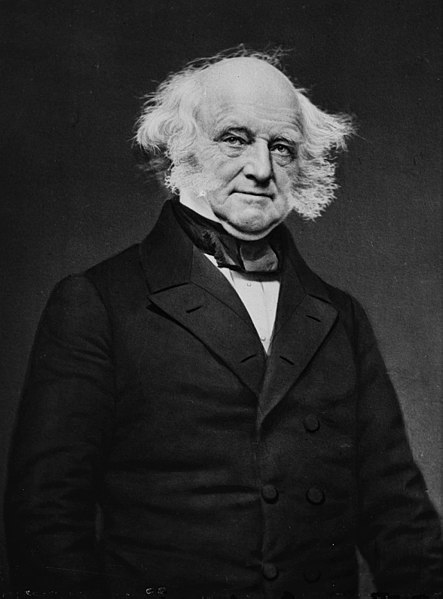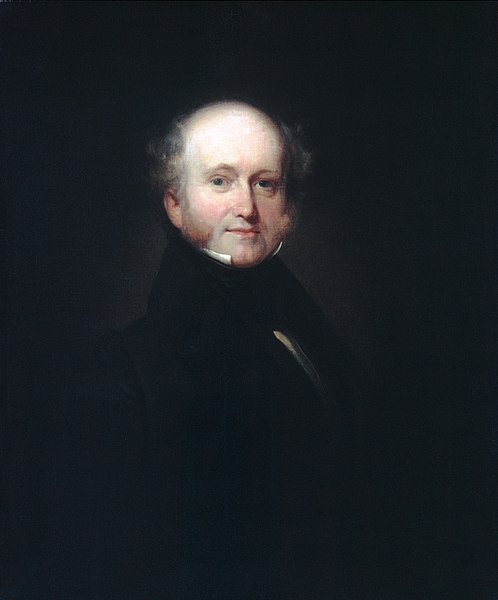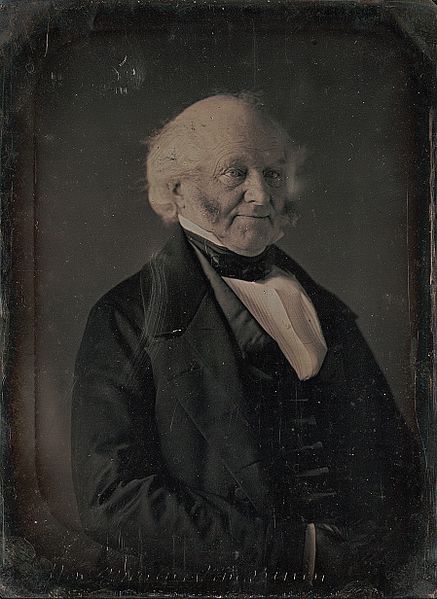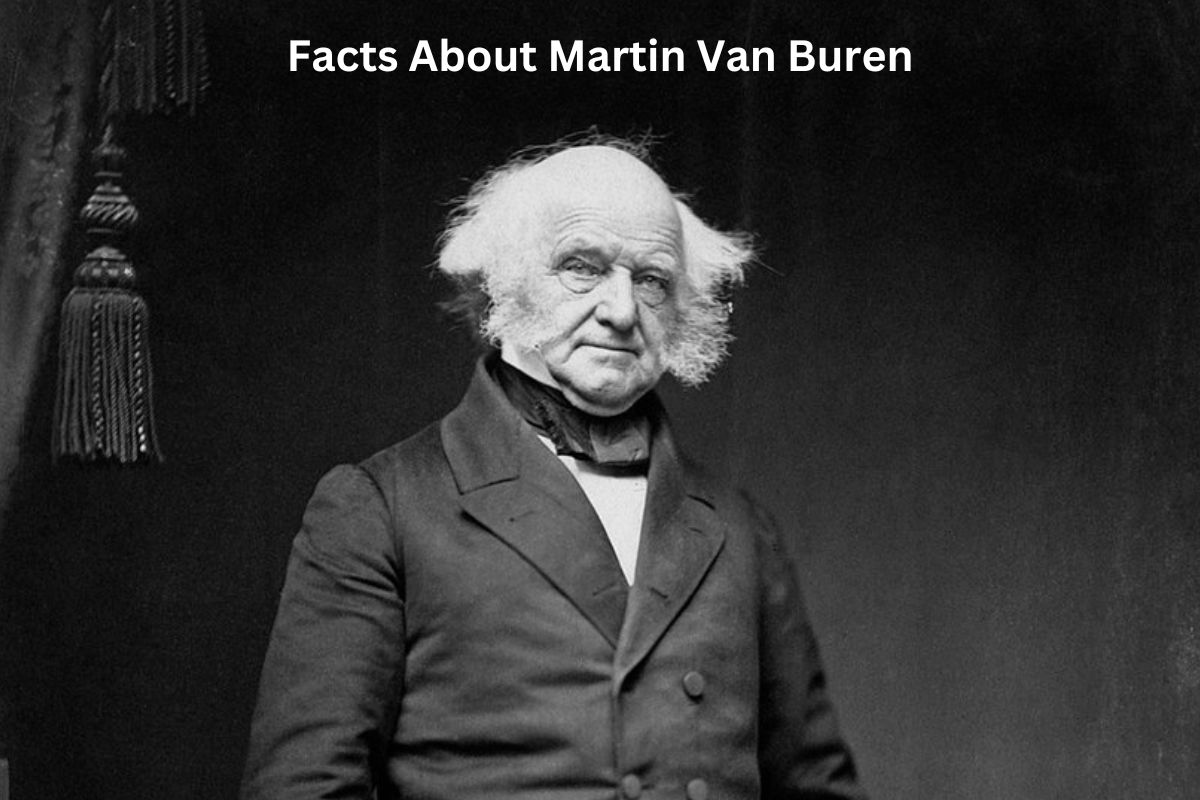Martin Van Buren, the eighth President of the United States, left an indelible mark on American politics during the 19th century. Born in Kinderhook, New York, on December 5, 1782, he earned the nickname “The Little Magician” for his political acumen.
Van Buren served as Secretary of State under Andrew Jackson, faced economic challenges during the Panic of 1837, and staunchly advocated for states’ rights and limited federal government intervention.
His opposition to the annexation of Texas, decision not to seek re-election after one term, and an unsuccessful bid for the presidency in 1844 mark key points in his career.
Van Buren’s life concluded on July 24, 1862, in Kinderhook, but his political legacy continues to be studied and discussed in the annals of American history.
Martin Van Buren Facts
1. 8th President of the United States
Martin Van Buren served as the eighth President of the United States from 1837 to 1841. He was inaugurated on March 4, 1837, and his presidency marked an important period in American history.
He followed Andrew Jackson in the presidency and continued many of Jackson’s policies, earning the nickname “The Red Fox of Kinderhook” due to his political cunning.

2. Born on December 5, 1782, in Kinderhook, New York
Martin Van Buren was born in the small Dutch community of Kinderhook, New York. He came from a relatively modest background, with his father owning a tavern and his mother being of Dutch descent.
Also Read: Martin Van Buren Accomplishments
Growing up in this Dutch-American community influenced his cultural heritage and values. His birthdate, December 5, 1782, makes him the first President to be born after the United States had declared independence from Britain in 1776.
3. Nicknamed “The Little Magician”
Martin Van Buren earned the nickname “The Little Magician” due to his exceptional political skills and strategic acumen. He was known for his ability to navigate the complex world of American politics, often using his wit and behind-the-scenes maneuvering to achieve his political objectives.
His diminutive stature (he was around 5 feet 6 inches tall) and his reputation for political cunning contributed to this nickname, which highlighted his effectiveness as a political operator.
Van Buren’s political talents were evident in his role as Secretary of State under President Andrew Jackson and in his rise to the presidency itself.
4. Served as Secretary of State under Andrew Jackson
Before becoming President, Martin Van Buren held various political positions, one of the most prominent being Secretary of State under President Andrew Jackson from 1829 to 1831.
In this role, he played a significant part in shaping Jacksonian policies and represented the United States in its foreign affairs. Van Buren’s tenure as Secretary of State solidified his influence within the Democratic Party and helped him build a close working relationship with President Jackson.

5. Faced economic crisis during the Panic of 1837
Martin Van Buren’s presidency was marked by a severe economic downturn known as the Panic of 1837. This financial crisis was characterized by bank failures, a sharp decline in economic activity, and widespread unemployment.
Van Buren’s response to the crisis, which included his opposition to government intervention, led to criticism and contributed to his unpopularity during his presidency. Despite efforts to stabilize the economy, the effects of the panic persisted throughout his term in office.
6. Advocated for states’ rights and limited federal government
Throughout his political career, Martin Van Buren was a staunch advocate for states’ rights and a limited role for the federal government. He believed in a strict interpretation of the Constitution, which meant that he favored a decentralized government where states retained significant powers and authority.
Van Buren’s commitment to these principles often put him at odds with those who advocated for a stronger federal government. His dedication to states’ rights was a central aspect of his political ideology and influenced his policy decisions as both Secretary of State and President.
7. Opposed the annexation of Texas
Martin Van Buren opposed the annexation of Texas to the United States during his presidency. This stance was primarily driven by his concerns about the expansion of slavery.
Texas had declared its independence from Mexico in 1836 and sought admission to the Union as a slave state. Van Buren believed that annexing Texas would aggravate sectional tensions between the North and the South over the issue of slavery.
His opposition to annexation was a politically controversial decision, as it was not well-received in the South, where many supported the expansion of slaveholding territories.

8. Did not seek re-election after one term
Following a challenging first term as President and facing criticism over his handling of the economic crisis, Martin Van Buren did not seek re-election in 1840.
His decision marked the first time since John Adams that a sitting President chose not to run for re-election after completing a single term. Van Buren’s presidency was marked by economic turmoil, and he recognized the need for fresh leadership to address the nation’s problems.
9. Ran unsuccessfully for President in 1844
Although Martin Van Buren did not seek re-election in 1840, he made a bid for the presidency again in the 1844 election. He sought the Democratic nomination but faced competition from other candidates within the party, including James K. Polk.
Ultimately, Van Buren did not secure the nomination, which went to Polk. His unsuccessful attempt marked the end of his active involvement in national politics.
10. Passed away on July 24, 1862, in Kinderhook, New York
After his political career ended, Martin Van Buren retired to his estate in Kinderhook, New York. He spent his later years in relative obscurity, engaging in writing and occasionally offering advice to fellow politicians.
Van Buren passed away on July 24, 1862, at the age of 79, in his hometown of Kinderhook. His legacy endures in American history as a key figure in the development of the Democratic Party and his contributions to shaping the political landscape of his era.
